The content of the article
For many women, the mere thought that they will not be able to avoid the onset of menopause leads to a panic state. However, from the point of view of medical science, all processes in the female body occur cyclically, and menopause is the same natural process as the period of puberty in a girl or the stage of flowering of the reproductive period in young women. Therefore, to perceive this phenomenon as some kind of disaster is not worth it, even if we are talking about an early menopause. Knowing the features and the first signs associated with the restructuring of the female body, you can correctly prepare for the upcoming changes.
What changes in the body occur during menopause
It is immediately worth noting that menopause is a gradual process of restructuring the female body. Its duration can be different, for some female representatives this period can last up to ten years or more. Characteristic signs, or, as they are also called, precursors, help to learn about the approach of menopause. All of them are due to a change in the hormonal background of a woman, caused by a decrease, and then complete extinction of ovarian function. Against this background, the reproductive capabilities of the female body are reduced.
In the normal course of this process, these changes take place slowly, without causing any serious problems for the ladies. It’s just that the body is gradually adapting to the changes taking place, getting used to working in new conditions. It is worth noting here that both physiological settings and the psychoemotional component are radically changing. Let us dwell on these important points.
Physiological changes with menopause
Since each female body has its own individual characteristics, menopause in all women is different. By the way, only one out of ten ladies experiences unpleasant sensations associated with this period. In the rest of the fair sex, menopause proceeds calmly, only sometimes its symptoms cause some discomfort.
Regarding changes in the functioning of organs and systems. All fixed dysfunctions are caused by metabolic disorders. They are manifested in the following:
- Changes in body weight (more often, everything increases, but its loss can also be noted).
- There is increased gas formation and flatulence.
- Often, stool disorder is noted (in most cases, it manifests itself in the form of constipation).
- Due to developing muscle weakness in the bladder, frequent urination and sometimes urinary incontinence are noted.
- Hormonal changes affect the cardiovascular system: there are complaints of heart palpitations (tachycardia), blood pressure rises.
- The protective ability of the immune system decreases, which provokes the appearance of allergic reactions.
- Serious changes in the sexual sphere are noted: sexual desire decreases, in rare cases there is a complete loss of libido.
To the above changes, it should be added that the restructuring of the body leaves its mark on the woman's appearance: the skin becomes dry, its elasticity is lost, and the structure of nails and hair is deteriorating. During this period, it is very important to provide the body with competent care, which consists in good nutrition and hydration of the skin. This is easy to implement through the use of quality cosmetics.
Distinctive features of early menopause
All of the above deviations from the norm during physiological processes are observed with early menopause. The only difference is that the first symptoms of menopause in this case are observed in women aged 40 years and even earlier. But most women notice the first symptoms of menopause after 45 years, which is considered a normal physiological age for this period. All the causes of menopause at a young age have not yet been fully studied, but it has been definitely established that among the unfavorable factors:
- surgical removal of the ovaries;
- other genital surgery;
- serious hormonal dysfunction;
- genetic predisposition.
The last point should be paid special attention, because if close relatives on the female side had cases of early menopause, then it is likely to expect it to occur at a young age with daughters or granddaughters.
Another feature characteristic of early menopause is that all negative manifestations grow rapidly, accompanied by a more vivid manifestation of symptoms. As a result of the rapidly developing process of changes, the female body experiences extreme stresses, which causes a significant deterioration in well-being.
The first signs of early menopause
In principle, against the background of the extinction of ovarian activity at an early age, all the same phenomena are observed as with a normal menopause. But there are exceptions. For example, due to the cessation of the normal production of the hormone estrogen, the skin is undergoing severe changes. The skin quickly loses its elasticity, deep wrinkles and pigmentation appear. In short, the aging process is rampant.
Among the most common symptoms of early menopause are the following symptoms:
- Menstrual irregularities. This is the main sign that signals the beginning of perestroika in the body of a woman. Moreover, not only the usual schedule of menstruation is violated, their character also changes. Some women have scanty discharge, while others, on the contrary, have severe blood loss. Often the situation becomes critical, and then you cannot do without professional help from doctors.
- Hot flashes are one of the most common signs of menopause and are characterized by a sharp rise in temperature. An unbearable sensation of heat appears on the face, body. As a rule, such attacks are accompanied by the appearance of hyperemia (red spots) in the neck, chest, and other parts of the body. Hot flashes can occur up to several times in one day, very often they are replaced by an attack of severe chills.
- High sweating is an indispensable companion of tides. In itself, increased sweating is extremely rare.
- Violation of the same can be attributed to the precursors of menopause. Women begin to complain of insomnia around the age of 40-45. It is noted that they fall asleep poorly, wake up several times in the middle of the night, and in the morning they feel sick and broken. More than a third of women of critical age face similar phenomena.
- Emotional instability seriously affects the usual way of life. Hormonal restructuring in some cases changes the psyche of women so much that it alarms their close circle. Some ladies become irritable, and sometimes even aggressive. Other representatives of the female half of the population, on the contrary, become self-absorbed, depressed, constantly complaining about something and cry.
- The fragility of bones develops due to the fact that during menopause there is an intensive leaching of calcium salts from the body. It is this feature that causes the fragility of bone tissue. Experimentally, scientists have found that in menopause women lose up to 3% of bone mass.For this reason, very often at critical age complex fractures and other injuries occur.
- Intimate problems, expressed more or less intensely, are observed in almost every woman of mature age. Hormonal changes lead to the fact that the vaginal mucous membranes secrete little secretion, which causes their dryness. For this reason, itching and burning sensation appear, and sexual intercourse becomes painful.
In addition to these main symptoms of menopause, attacks of weakness and severe headaches are often observed. During this period, taste preferences and odors may also change.
Menopause stages
Regardless of the age when the precursors of menopause have declared themselves, the entire transition period of the body is divided into several stages. The whole process of "disconnecting" reproductive functions occurs against the background of a decrease in the production of the hormone estrogen. As a rule, it lasts from five years or more. But with an early menopause, these changes, as already noted, can occur in an accelerated mode.
It is generally accepted in medical circles that the onset of menopause occurs 2 years before the last menstruation, and the end of this cycle - about 4 years after the last ovulation. This whole lengthy process is divided into the following stages:
- Premenopause. The onset of this period depends on the individual characteristics of each woman: with an early menopause, it is 38-40, and with a normal course - after 45 years. But in some women up to 50 years of age, there are no deviations during physiological processes. In such women, the ovaries work well, only sometimes the intervals between menstruation become longer. It is at this stage that hot flushes, spleen attacks, and sexual disorders first appear.
- Menopause occurs in about 50-53 years. During this period, the ovaries completely stop functioning, although menstruation can still be occasionally observed. True, the intervals between their appearance are increasing. At this time, the main symptoms are especially pronounced. Lack of estrogen causes abnormalities in the work of the cardiovascular sphere, endocrine disorders like diabetes are not ruled out.
- Postmenopause. This term is usually called the period when there was the last menstruation and until the end of a woman's life. This stage is characterized by the fact that all previously disturbing symptoms completely disappear. This means the completion of the entire hormonal adjustment.
Thus, we can conclude that the main symptoms accompanying menopause are in the first two stages. It should be noted here that the beginning of one stage and its transition to the next level is extremely difficult to determine. Indeed, often in women, the course of menopause differs from the process described in the medical reference book.
To clearly determine the boundaries of the above stages, doctors recommend that all women after 40 must visit an endocrinologist. It would be nice if such a consultation is held at least once a year.
True, modern medicine has new diagnostic methods. Today, a special test for menopause is used in practice, with the help of which the level of follicle-stimulating hormone is determined. This is a very accurate analysis that captures the onset of menopause. A similar test strip can now be freely purchased at the pharmacy. True, this analysis is significantly inferior in accuracy to the results of laboratory research methods.
Important! Bad habits, especially smoking, can lead to an early menopause. Among the negative factors are also stresses, lack of body weight, rigid diets.
Effective Therapies
Once again, I want to emphasize that the onset of menopause does not mean the end of an active life. Some women believe that this period has its wonderful aspects.So that unpleasant symptoms do not interfere with enjoying life, you should use the means available to modern medicine. The following methods will help prolong youth and get rid of discomfort at different stages of menopause:
Hormone replacement therapy
This is a very effective method that allows you to compensate for the deficiency of hormones produced by the body due to special drugs. Basically, these are pills that are taken for a long time according to the schedule prescribed by the doctor. True, this method is not suitable for all women. Among the contraindications for such therapy:
- oncological pathologies;
- thrombophlebitis;
- strokes
- diabetes;
- endometriosis;
- mastopathy
- thromboembolic disease in the acute phase.
In addition, it is very difficult to choose an adequate hormonal drug, since this drug group causes a lot of side effects.
Phytotherapy
Medicines based on medicinal herbs are highly safe, although they are not as effective as hormones. But, nevertheless, this is a good alternative to such drugs, because it allows you to balance the psycho-emotional state, establish sleep, increase vitality.
Other medications
At the moment, the pharmaceutical industry produces a lot of tools that can alleviate the condition of women in different periods of menopause. Basically, such drugs act simultaneously in several directions: relieve anxiety, cheer up, stop somatic manifestations. There are medications that reduce sweating, relieve headaches, and normalize sleep. It is recommended to take such funds to achieve the desired effect in courses with short breaks.
Psychotherapy
Psychotherapy also has a whole arsenal of effective techniques that can help women adapt to changes in the body. Classes with a specialist in this field will help you to tune in to positive, get rid of anxious feelings. Such sessions are best carried out as a complement to drug therapies. They combine well with practices such as meditation and yoga.
Innovative tools
Innovative tools successfully complemented the possibilities of modern medicine. Separately, it is worth noting drugs, such as PPG, which is injected. It is able to not only localize the unpleasant symptoms of menopause, but also has a rejuvenating effect on the whole body.
To summarize all of the above, I want to emphasize once again that menopause is a natural process that the female body can cope on its own. It is inherent in nature itself. And all the problems associated with the course of this period can be easily eliminated. For this, medicine has all the necessary tools.
To survive the troubles characteristic of menopause, do not refuse the help of professionals. Competent specialists will help you choose the right treatment program for every woman. It must be remembered that the timely start of therapy will alleviate the condition and make it possible to lead a full life.
Video: the first symptoms of menopause in women





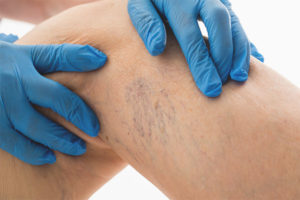
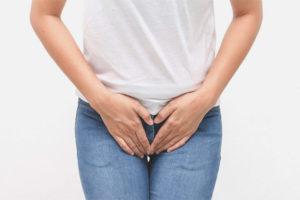
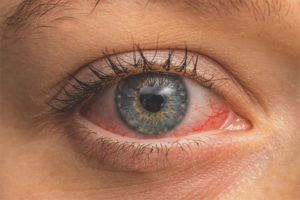

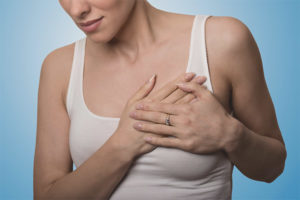
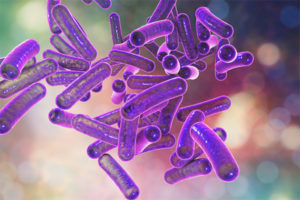
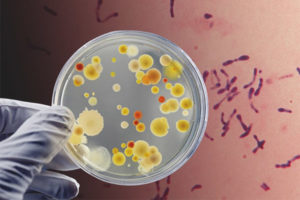

Submit